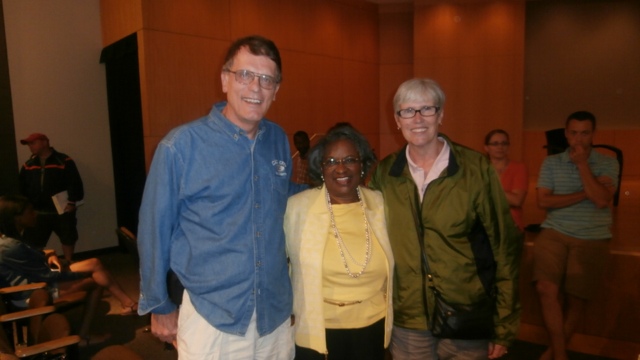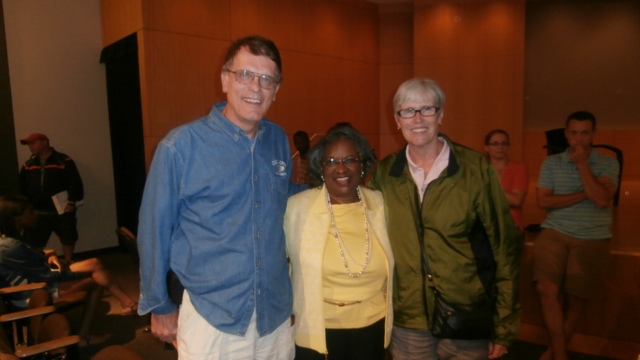The last Two days (Sunday and Monday) have been spent largely in Atlanta and then Albany, GA. In Atlanta we had the opportunity to visit the ML King Center and the hear Juanita Abernathy (Ralph Abernathy’s widow) share her reflections on the Civil Rights battles in Montgomery, Birmingham, Selma and elsewhere. Then today we visited Albany, GA and heard Rutha Harris, one of the original Freedom Singers. The Freedom Singers were a group of young folks who went all over the country singing songs of the Movement, raising money for the battle in Albany for SNCC. One of the things that struck me in listening to both of them is that though the key events of the Civil Rights movement are nearly 50+ years past, they are still alive for them
While I was quite familiar with many of the key Civil Rights struggles, I learned some things especially in Albany. For Martin Luther King Albany was often considered a “defeat” in the media because despite filling with jails with hundreds of protestors, the key demands were not immediately won, as in Montgomery. One of the lessons social movements have had to learn is that early victories, such as the Montgomery Bus Boycott, do not necessarily “transfer” to other settings. This was the case in Albany. Sheriff Pritchard learned from the mistakes of other law enforcement officers and responded non-violently to the protests in Albany, which made him more sympathetic to the media and thus drew attention away from the Civil Rights cause. So King left Albany feeling like he had “failed.”
However, the SNCC and CORE workers in Albany continued their work and eventually won huge victories in breaking down segregation in law enforcement, schools and voting rights. One of the interesting things of about Albany is that they didn’t just attack one expression of segregation (bus terminals, voting, etc.) they attacked the Jim Crow system head on and despite many set backs won huge victories. Their perseverance and tenacity in the face of failure, frustration and struggle is a great example. Frederick Douglass pointed over 150 years ago that the oppressors never give up power without a struggle. Albany is testimony to the value of ongoing struggle.
As we battle the issues of today: gun violence, economic disparity, unequal public schooling, and conservative, corporate backlash, I am reminded that victory is not easy, quick or without frustration.
Related




